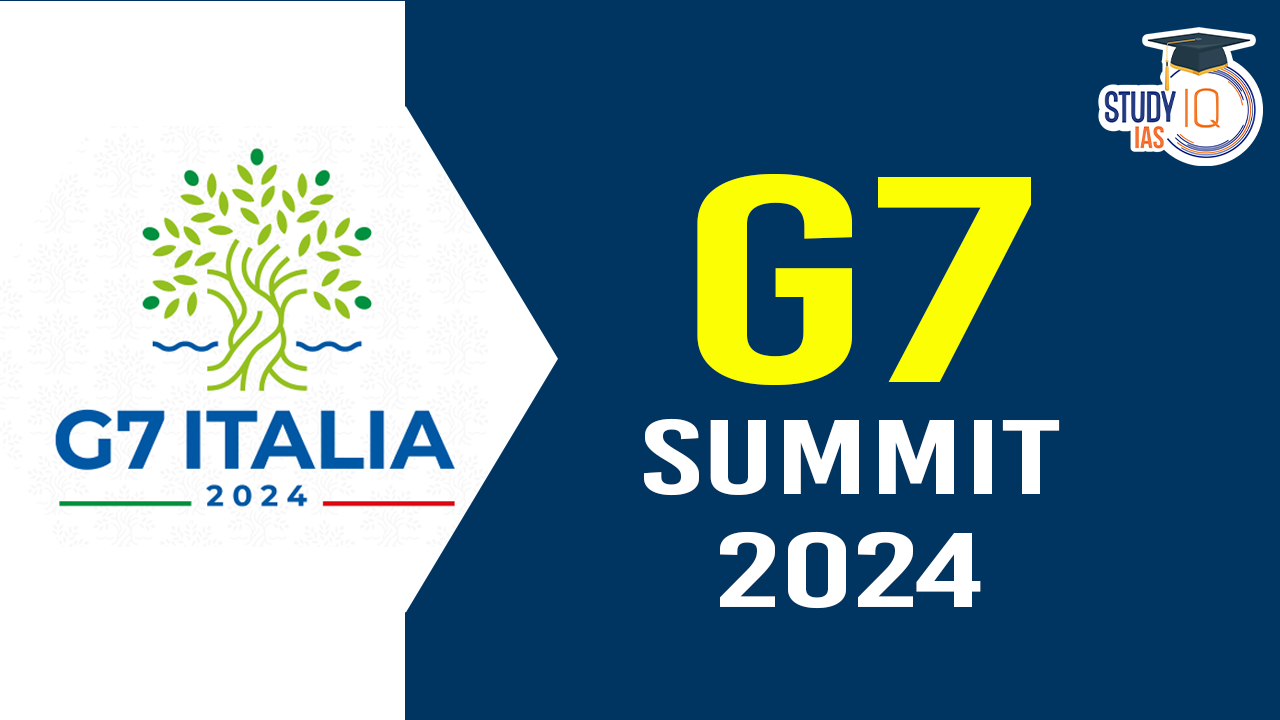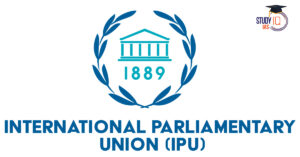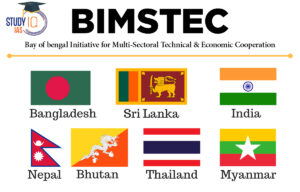Table of Contents
The G7 leaders expressed “strong concern” over the ongoing Middle East crisis after Iran’s missile attack on Israel but emphasized that a diplomatic resolution is still achievable. Italy, currently holding the G7 presidency, led the discussion, calling for a reduction in regional tensions. The leaders advocated for the implementation of U.N. resolutions aimed at a Gaza ceasefire and the release of hostages, while also stressing that a region-wide conflict would benefit no one. They also discussed strengthening the UNIFIL peacekeeping mission along the Israel-Lebanon border.
G7 Leaders Urge Diplomatic Solution Amid Middle East Crisis
At a critical juncture, G7 leaders expressed their strong concern over escalating tensions in the Middle East, particularly following Iran’s missile attack on Israel. In a virtual summit hosted by Italy’s Prime Minister Giorgia Meloni, the leaders underscored the urgency of pursuing a diplomatic solution to avoid a region-wide conflict. They condemned Iran’s aggression while emphasizing that war would be detrimental to all involved parties.
Key discussions revolved around implementing UN resolutions 2735 (pertaining to a Gaza ceasefire) and 1701 (relating to Israel-Hezbollah conflict in 2006), as well as coordinating sanctions on Iran. Italy also proposed strengthening the UNIFIL peacekeeping force on the Israel-Lebanon border to maintain security in the region. Despite rising tensions, the leaders affirmed that diplomacy remains the best path to stabilize the situation.
They condemned Iran’s aggression while emphasizing that war would be detrimental to all involved parties.
Key discussions revolved around implementing UN resolutions 2735 (about a Gaza ceasefire) and 1701 (relating to the Israel-Hezbollah conflict in 2006), as well as coordinating sanctions on Iran. Italy also proposed strengthening the UNIFIL peacekeeping force on the Israel-Lebanon border to maintain regional security. Despite rising tensions, the leaders affirmed that diplomacy remains the best path to stabilize the situation.
50th G7 Summit in Italy
The 50th G7 Summit, hosted in Italy’s Apulia region at Borgo Egnazia from June 13-15, 2024, gathers leaders from Canada, France, Germany, Italy, Japan, the UK, and the US. Joined by EU representatives, discussions focus on global issues including Ukraine’s conflict, Middle East tensions, climate change, and AI ethics. Guests from nations like India and organizations like the African Union enhance dialogue on international cooperation and strategic partnerships.
| Event | 50th G7 Summit |
|---|---|
| Host Country | Italy |
| Dates | June 13-15, 2024 |
| Venue | Borgo Egnazia, Apulia, Italy |
| Host | Prime Minister Giorgia Meloni |
| Participants | Canada, France, Germany, Italy, Japan, UK, US, EU |
| Invited Guests | India, Saudi Arabia, Jordan, Brazil, Argentina, Turkey, UAE, Kenya, Algeria, Tunisia, Mauritania (AU), Vatican City |
| Key Topics | Ukraine conflict, Middle East issues, climate change, AI |
| Special Sessions | Outreach on AI, energy, Africa, Mediterranean |
| Bilateral Meetings | PM Modi with Italian PM Meloni, among others |
| Expected Outcomes | Joint statements, policy agreements, strategic partnerships |
| Official Website | G7 Italy Summit |
Agenda for the 2024 G7 Summit
- Defending Rules-Based International System: The summit will address Russia’s aggression towards Ukraine.
- Middle East Conflict: Discussions will cover the ongoing conflict in the Middle East.
- Partnerships with Developing Nations: Strengthening ties, particularly with African countries, is a key focus.
- Key Priorities:
- Migration
- Climate change
- Food security
- Implications of artificial intelligence (AI)
Prime Minister Narendra Modi’s Participation
India, represented by Prime Minister Narendra Modi, is participating as an Outreach Country. PM Modi aims to tackle global challenges through fruitful discussions with world leaders, focusing on promoting international cooperation. This marks India’s 11th participation in the G7 and PM Modi’s fifth consecutive attendance.
PM Modi’s Schedule and Agenda
- Bilateral Meetings: PM Modi has a hectic schedule of bilateral meetings with leaders such as French President Emmanuel Macron, UK Prime Minister Rishi Sunak, Japanese Prime Minister Fumio Kishida, German Chancellor Olaf Scholz, and Italian Prime Minister Giorgia Meloni. He is also likely to meet Ukrainian President Volodymyr Zelenskyy.
- Outreach Session Address: PM Modi will address the outreach session, focusing on AI, energy, Africa, and the Mediterranean. This session aims to share perspectives between G7 and outreach countries.
- India-Italy Strategic Partnership: Modi emphasized the commitment to consolidate the strategic partnership with Italy and bolster cooperation in the Indo-Pacific and Mediterranean regions.
G7 Summit 2024 Theme
The theme for the G7 Summit 2024 is “Building a Resilient and Inclusive Global Economy.” This theme underscores the summit’s focus on fostering economic recovery post-pandemic, promoting inclusive growth, addressing climate change, and enhancing international cooperation. Leaders from G7 Countries and invited guests will discuss strategies to strengthen resilience against future global challenges while ensuring that economic benefits are shared equitably among nations and communities worldwide.

Why Does the G7 Need India?
Economic Significance
- GDP: $2.66 trillion, larger than France, Italy, and Canada.
- Growth: Projected to grow by 5.9% in 2023-2024.
- Investment Appeal: Market potential, low manufacturing costs, business reforms, and favorable industrial climate.
Demographic Advantage
- Population: Recently surpassed China as the most populous country.
- Workforce: 68% in the working-age group (15-64 years); 65% under 35 years.
- Labor Pool: Young, skilled, and semi-skilled workforce driving economic growth.
Strategic Importance in Indo-Pacific
- Geopolitical Shifts: Increasing focus on Indo-Pacific region by global powers.
- Western Strategies: UK, France, and Germany have developed Indo-Pacific strategies; Italy showing interest.
- Regional Stability: Key ally in countering China, especially in the Indian Ocean.
Role in Global Energy Security
- Energy Crisis: Russia-Ukraine war disrupted European energy supplies.
- Oil Imports: Increased purchases of discounted Russian oil.
- Indirect Benefits: Refined Russian crude oil from India reaching Europe, stabilizing energy flows.
Diplomatic Balance
- Relations: Maintains cordial ties with both Russia and the West.
- Mediation Potential: Unique position to facilitate dialogue in conflicts like the Ukraine war.
- Global Stability: Potential to contribute to peace and stability, easing economic and political tensions.
Contributions to Global Governance
- Inclusive Frameworks: Enhances legitimacy and representativeness in global governance.
- Broader Challenges: Addresses issues like climate change, global health, and economic development.
India’s Rising Global Role
- With China posing a significant threat to Western values and interests, India is seen as a beacon of hope.
- There is a renewed belief in India’s potential as a “vishwa mitra, vishwa bandhu, vishwa guru, and vishwa rakshak” (friend, family, guru, and protector) and is hopeful for India’s promise in navigating global challenges.
- India’s strategic autonomy and its reluctance to take sides have enhanced its influence in global affairs.
Diplomatic and Strategic Interventions
- India’s National Security Advisor proposed a unilateral ceasefire to Israeli Prime Minister Netanyahu during Ramadan, which nearly succeeded.
- India’s efforts include breakthroughs with Saudi Arabia, the UAE, and attempts to mediate between Russia and Ukraine.
What are the Concerns?
- The current bureaucratic system is seen as inadequate for supporting innovative ideas, necessitating a reliance on homegrown scholars and ancient texts.
- The rapid rise of China as a revisionist power determined to build a global empire is a major strategic concern for India.
- Ensuring stability and influence in India’s immediate neighbourhood is critical for its rise to global prominence.
- A troubled Pakistan resuscitating its terror machinery presents a significant challenge.
Roads Ahead
- To fulfill global expectations, India needs to act with urgency, audacity, and flexibility, drawing from its ancient wisdom and traditions
- India should focus on integrating traditional Indian wisdom and ideas from the Global South into policy-making.
- Great powers have always secured stability in their neighbourhoods before ascending to global prominence.
- India must prioritise stability and influence in South Asia, particularly with a problematic Pakistan.
- India should proactively address security concerns related to China by collaborating with regional and global allies.
| Facts |
Recent Actions by G7
|
G7 Summit 2024: Participants and Representatives
Core G7 Members
| Country | Participant / Representative | Title |
|---|---|---|
| Canada | Justin Trudeau | Prime Minister |
| France | Emmanuel Macron | President |
| Germany | Olaf Scholz | Chancellor |
| Italy (Host) | Giorgia Meloni | Prime Minister |
| Japan | Fumio Kishida | Prime Minister |
| United Kingdom | Rishi Sunak | Prime Minister |
| United States | Joe Biden | President |
European Union
| Representative Body | Participant / Representative | Title |
|---|---|---|
| European Commission | Ursula von der Leyen | President |
| European Council | Charles Michel | President |
Invited Guests
| Country / Organization | Participant / Representative | Title |
|---|---|---|
| India | Narendra Modi | Prime Minister |
| Saudi Arabia | Mohammed bin Salman | Crown Prince and Prime Minister |
| Jordan | Abdullah II | King |
| Brazil | Luiz Inácio Lula da Silva | President |
| Argentina | Javier Milei | President |
| Turkey | Recep Tayyip Erdoğan | President |
| United Arab Emirates | Mohamed bin Zayed Al Nahyan | President |
| Kenya | William Ruto | President |
| Algeria | Abdelmadjid Tebboune | President |
| Tunisia | Kais Saied | President |
| Mauritania (African Union) | Mohamed Ould Ghazouani | President, African Union Chair |
| Vatican City | Pope Francis | Pope |
International Organizations
| Organization | Participant / Representative | Title |
|---|---|---|
| United Nations | António Guterres | Secretary-General |
| World Bank | Ajay Banga | President |
| International Monetary Fund | Kristalina Georgieva | Chief Operating Officer |
| African Development Bank | Akinwumi Adesina | President |
| OECD | Mathias Cormann | Secretary-General |
G7 Summit 2024: Key Issues
| Issue | Details |
|---|---|
| Russia-Ukraine Conflict |
|
| China Relations |
|
| Migration |
|
| Artificial Intelligence |
|
| Other Issues |
|
Ukraine Conflict
The war in Ukraine remains a critical concern. Ukrainian President Volodymyr Zelenskyy is expected to lead discussions on international support for Ukraine, strategies for achieving peace, and measures to counter Russian aggression. This dialogue comes just ahead of the Peace Summit in Switzerland, scheduled to begin on June 16.
Gaza Conflict
The ongoing conflict in Gaza is another major topic. The G7 leaders will explore ways to de-escalate tensions and address the humanitarian crisis in the region. This session aims to formulate a unified approach to promote peace and stability in the Middle East.
Climate Change and Development
The summit will open with discussions on enhancing partnerships in Africa, addressing climate change, and promoting sustainable development. Leaders will seek to strengthen international cooperation to combat environmental challenges and support economic growth in developing regions.
Indo-Pacific and Mediterranean Relations
Expanding relations in the Indo-Pacific and Mediterranean regions is also on the agenda. The G7 aims to bolster economic and strategic ties in these crucial areas, fostering regional stability and growth.
Artificial Intelligence (AI)
Pope Francis is expected to lead talks on the ethical implications of AI and the importance of maintaining human control over AI technologies. This discussion will address the potential risks and benefits of AI, emphasizing the need for responsible innovation.
Importance of G7 Summit 2024 For India
You can check here the Importance of G7 Summit for India in every aspect in detail:
- Diplomatic Influence: Opportunity for Prime Minister Modi to engage directly with leaders of major global economies.
- Strategic Partnerships: Strengthening ties with G7 countries in trade, technology, and security.
- Global Policy Influence: Contributing India’s perspectives on critical global issues like climate change and economic stability.
- Economic Opportunities: Potential for increased trade, investments, and collaborations with G7 nations.
- Recognition and Leadership: Enhancing India’s global stature and influence as a key player in international affairs.
- Addressing Global Challenges: Collaborative efforts to tackle shared challenges such as pandemics and sustainable development.
Challenges
- Declining Relevance: The G7’s share of global GDP has fallen significantly, raising questions about its influence and representation in a changing world order. The rise of emerging economies like China and India highlights the need for a more inclusive global governance structure.
- Internal Disagreements: Disagreements among member countries, particularly on issues like trade and climate policy, can hinder cooperation and effectiveness.
- Limited Effectiveness: The G7’s ability to tackle global challenges is sometimes questioned due to its lack of enforcement mechanisms and the voluntary nature of its commitments.
- Competition from other Forums: The G20, with its broader membership, is seen as a more inclusive platform for addressing global economic issues, potentially overshadowing the G7’s role.
Way Forward
- G7+ Proposal: Expanding the G7 to include major emerging economies like China, India, and Brazil could enhance its relevance and legitimacy in the global arena.
- Increased Cooperation: Strengthening cooperation among G7 members, particularly on contentious issues like climate change and trade, is crucial for achieving meaningful outcomes.
- Focus on Specific Priorities: Addressing specific, actionable priorities like pandemic preparedness, climate finance, and digital governance could demonstrate the G7’s continued relevance and ability to deliver results.
- Collaboration with other Forums: Working in tandem with other international forums like the G20 could leverage the strengths of different groups and avoid duplication of efforts.
G7 Summit 2025
The G7 Summit 2025 will be hosted by Canada, bringing together leaders from Canada, France, Germany, Italy, Japan, the United Kingdom, the United States, and the European Union. Scheduled discussions will encompass global economic recovery, climate action, security issues, and advancing international cooperation. The summit serves as a pivotal forum for addressing pressing global challenges and shaping policies to foster sustainable development and prosperity on a global scale.
Sharing is caring!


 International Standards of Accounting an...
International Standards of Accounting an...
 150th Summit of Inter-Parliamentary Unio...
150th Summit of Inter-Parliamentary Unio...
 BIMSTEC Countries 2025, Area of Cooperat...
BIMSTEC Countries 2025, Area of Cooperat...





















